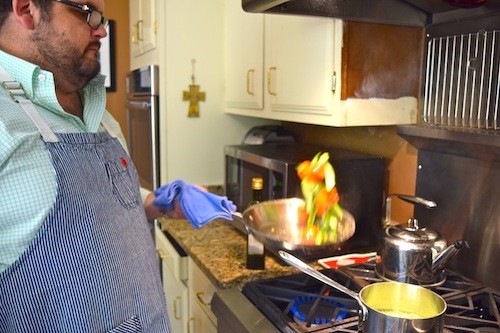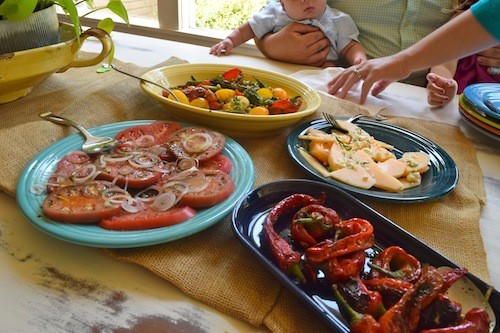It’s been a lively few years for Kelly English.
Back in 2009, he was named one of Food & Wine‘s Best New Chefs. Since then, he’s appeared in Bon Appétit, Garden & Gun, and Everyday with Rachael Ray. His flagship, Restaurant Iris, is consistently voted the best restaurant in Memphis. Now he’s opening a new Second Line in Oxford. What’s his secret?
“No secrets,” English answers, with an insouciant shrug. “Good food is good food. I just put a little salt on it.”
Which is a bit like David Copperfield saying he’s just playing around with cards — right before he pulls the ace of spades out of your ear. But here at the Flyer, we don’t take our magic on faith. So we signed English up for our Farmers Market Challenge, in which we take a chef to the farmers market and make lunch.
Today we’re headed to the Church Health Center’s tomato festival. Many people don’t know that CHC has a weekly farmers market — but they ought to. The market, at CHC’s wellness facility on Union, is convenient and well-curated, and it has the virtue of being open on Tuesday.
It also has a farm-fresh tomato festival. ‘Nuff said.
English and I start by making a run on the purple hull peas at Harris Produce. Tiny, green, and adorable, they’re practically flying off the shelf, but we manage to score a $5 bag. Next we stock up on peaches and tomatoes. Despite the heat — a blistering 93 degrees — English finds the energy to wax philosophical.
“So often, I think we try to cover up character with newness or perfection,” he reflects, holding up a blemished tomato. “And we lose a lot when we do that.”
He’s right, of course. Good tomatoes do not look like stock photos. They are ugly and delicious. These particular tomatoes — Cherokee purples from Peach World — atone for their funny shape by being rich and heartbreakingly sweet, with a bright, acid finish.
We round out our market basket with a few fresh herbs filched from the CHC Wellness garden. (Shh, don’t tell.) Then it’s back to English’s home, a one-story charmer in Memphis’ Evergreen neighborhood. We are greeted at the door by his brother, Todd, who will run the kitchen at Second Line Oxford.
So I’m dying to know — what was English like as a kid?
“I’m keeping my mouth shut,” Todd answers, “seeing as how he signs my paychecks.”
English, who has begun ostentatiously sharpening a large kitchen knife, nods his approval. Then he starts chopping. He’s dreamt up a medley of summertime produce — peaches, jalapeño, homemade ricotta, and fennel — but he can’t figure out what to call it. His working title is “peach situation.” But whatever you do, don’t call it a salsa.
“A lot of chefs don’t know what to do with fish,” English observes, “so they throw some fruit on it and call it a salsa. I’m thinking, come on. You’ve gotta try harder than that.”
After the “peach situation” is plated, English gets to work on the main event — a sauté of diced onions, purple hull peas, and Gulf shrimp. When it comes off the stove, he tosses it with mayo, Creole mustard, and lemon juice. Then he serves it with shredded basil on a bed of Cherokee purple tomatoes. Time to eat.
What’s astounding about this food is how simple it is. In all, there are about 12 ingredients. It takes about half an hour to prepare. Volume-wise, it probably wouldn’t fill a Starbucks cup. But the ingredients are so fresh, the flavors so intense, that it ends up feeling like a magic trick. David Copperfield would be proud.
While we eat, English remembers his time washing dishes in Barcelona. Back then, he was studying abroad at Ole Miss, paying his way through school by working in kitchens. Funny enough, scrubbing pots in Catalunya taught him that food wasn’t just a means to an end — it was an end in itself.
“We were working with sixth-generation farmers,” English recalls. “Farmers who were representing not just their wife and kids, but generations of their family that they’d never even met. So when they grew a bell pepper, it would have to make their great-grandfather proud. I thought that was amazing.”
 John Klyce Minervini
John Klyce Minervini 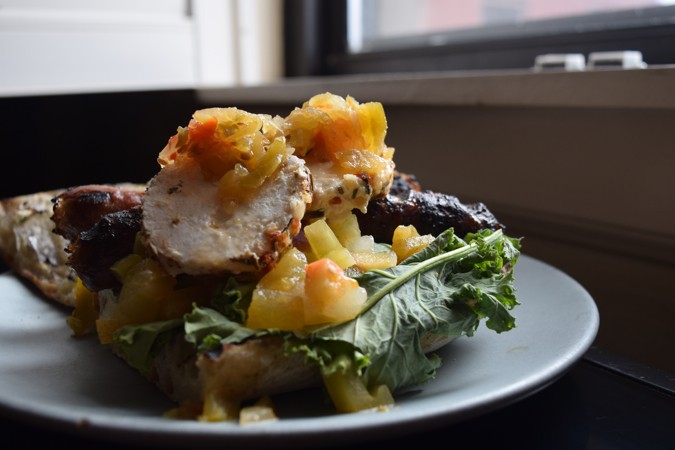 John Klyce Minervini
John Klyce Minervini  John Klyce Minervini
John Klyce Minervini 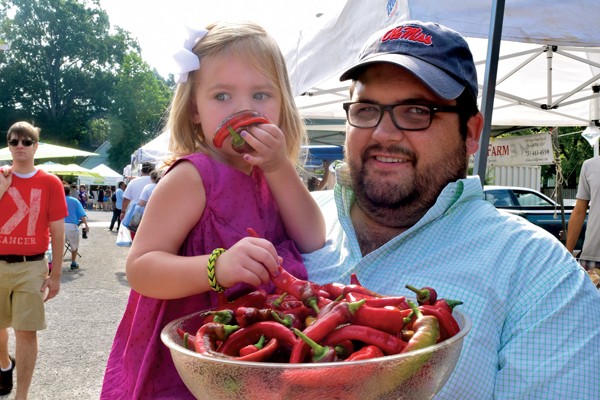 John Minervini
John Minervini 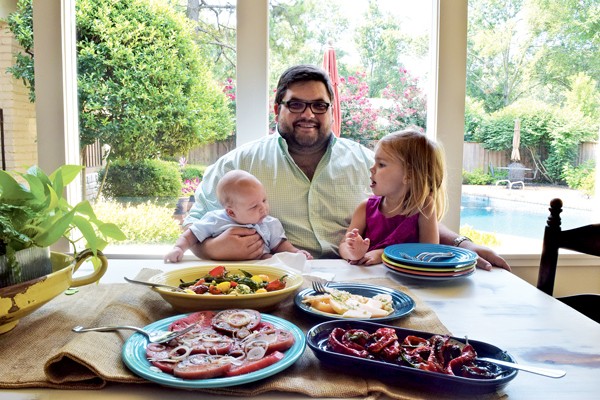 food Feature By John Klyce Minervini
food Feature By John Klyce Minervini 